WELLINGTON COLLEGE INTERNATIONAL SCHOOL BANGKOK
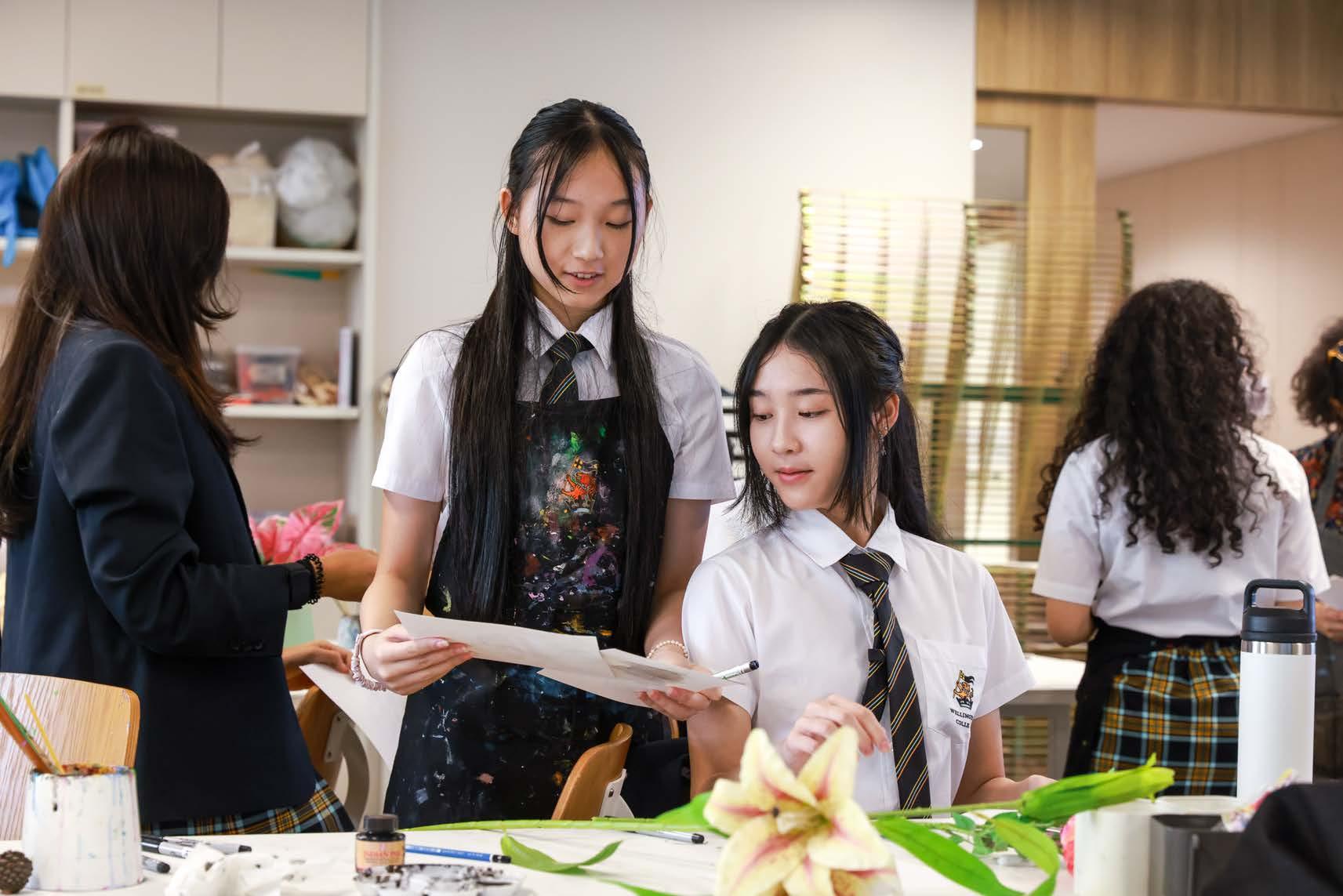


At Wellington, values shape everything that we do, every day. They are part of every lesson, every conversation, every game. They provide continuity from year to year, and we are proud to walk in the footsteps of Wellingtonians before us.
The pioneering Wellington education, steeped in these values, prepares students to serve, and help shape the world of tomorrow.
•International Pearson Edexcel
Topic
•Natural forms: drawing and photography
Work Covered
• A series of observational drawings using different approaches to drawing, styles, materials and surfaces, whilst exploring a variety of possible coursework topics.
•A series of photographs taken in the studio and outside, exploring a variety of possible coursework topics.
•Analysis of artists’ work
• Developing skills in recording from first hand sources, both through drawing and photography.
• Developing skills in using different media, materials, techniques and processes.
•Developing ideas through investigation in response to a topic.
•Learning about Art History.
•Learning to write about artists’ work and analyse the formal elements, using specialist Art vocabulary.
•Learning to demonstrate critical understanding.
Assessment
Students’ work is assessed in an ongoing basis, using the success criteria specified for each task. Students are assessed based on acquiring the skills required to access IGCSE. Overall grades are holistic, taking into consideration all the work produced throughout the term.
Lent Term
Topic
•Manmade Forms: printmaking and painting
Work Covered
• Drawings and paintings from observation and secondary sources, using different approaches to drawing, styles, materials and surfaces.
•Photography.
• Printmaking techniques: monoprinting, lino printing and etching.
•Thumbnails sketches to develop ideas.
• Development pieces showing experimentation and personal reflection.
•Analysis of artists’ work and Art movements.
•Drawing accurately and recording detail from direct observation and secondary sources.
•Recording creatively through photography and developing postproduction skills.
• Painting in different styles, using a range of media, techniques and processes
• Printmaking using a range of media, techniques and processes.
• Developing confidence to mix media creatively.
•Developing ideas through investigation in response to a topic, understanding the value of personal research and experimentation.
• Developing and refining ideas through reviewal and analysis of one’s work.
•Learning about Art History, movements and the work of artists.
•Learning to write about artists’ work and analyse the formal elements, using specialist Art vocabulary and demonstrating critical understanding.
Students’ work is assessed in an ongoing basis, using the success criteria specified for each task. Students are assessed based on acquiring the skills required to access IGCSE. Overall grades are holistic, taking into consideration all the work produced throughout the term.
•Coursework Unit: personal work

• A series of observational drawings exploring different approaches to drawing, styles, materials and surfaces, based on a coursework topic of their choice.
•A series of photographs taken in the studio and outside, exploring a chosen coursework topic.
•Finding, researching and analysing chosen artists’ work and Art movements.
•Thumbnail studies to develop ideas.
• A series of development pieces showing experimentation (media, techniques and styles) and personal reflection.
•Drawing accurately and recording detail from direct observation and secondary sources.
•Recording creatively through photography and applying postproduction skills.
• Developing skills in using different media, materials, techniques and processes.
• Drawing, painting, printing, sculpting in different styles, using a range of media, techniques and processes, as well as exploring creative approaches to mixing media.
•Developing ideas through investigation in response to a topic, understanding the value of personal research and experimentation.
• Developing and refining ideas through reviewal and analysis of one’s work.
•Learning about Art History, movements and the work of artists.
•Learning to write about artists’ work and analyse the formal elements, using specialist Art vocabulary and demonstrating critical understanding.
Students’ work is assessed in an ongoing basis, using the success criteria specified for each task. Students are assessed based on acquiring the skills required to access IGCSE. Overall grades are holistic, taking into consideration all the work produced throughout the term.

•International Pearson Edexcel
Topic
•Unit 1 – The nature and variety of living organisms
•Unit 2 – Structures and functions of living organisms
Work Covered
•Topic 1.1 Characteristics of living organisms
•Topic 1.2 Variety of living organisms
•Topic 2.1 Cell structure and organisation
•Topic 2.2 Movement of substances into cells
• Topic 2.3 Biological molecules (biochemistry)
•Topic 2.4 Nutrition in plants
•Topic 2.5 Nutrition in humans
Key Skills

• Students will reflect on their prior understanding of key concepts and use this foundation knowledge to build a deeper understanding of life, the cell and key biological processes.
•We will continue to work on our investigative skills, designing and developing experimental work to answer questions related to our learning.
• Core practicals will include the investigation of diffusion and osmosis, testing of biological molecules, investigating the effect of temperature and pH on enzyme activity, the energy content of food and photosynthesis.
Assessment
•Students will receive regular formative assessment during class and for set prep pieces.
•They will sit more formal end of topic assessments for Topics 1.1-1.2, Topics 2.1-2.2 and Topics 2.3-2.5 and core practical work will be marked with regular feedback provided.
Topic
•Unit 2 – Structures and functions of living organisms
Work Covered
•Topic 2.6 - Respiration
•Topic 2.7 - Gas Exchange in Plants
•Topic 2.8 - Gas Exchange in Humans
•Topic 2.9 - Transport in Humans
•Topic 2.10 - Excretion

Key Skills
•Laboratory skills – various practical activities interspersed throughout the topics.
•Graph drawing and interpretation. Drawing conclusions from data and evaluating scientific investigations.
• Balancing word and symbol equations.
• Exam skills – question interpretation and practice answers with self and peer marking.
Assessment
End of Topic Tests for topics 2.6, 2.8 and 2.9 as well as regular marking and feedback of class work and independent work.
Topic
•Unit 2 – Structures and functions of living organisms
Work Covered
•Topic 2.11 - Transport in Plants
•Topic 2.12 - Coordination and Response in Plants
•Topic 2.13 - Coordination and Response in Humans
Key Skills
• Investigation skills – lab work, data interpretation, evaluating investigations and suggesting improvements
• Group and individual work with laboratory equipment
•Maths skills in biology
• Exam technique – using command terms and understanding questions in test papers
Assessment
•End of topic tests for 2.11, 2.12 and 2.13
•End of year exam covering all content from Year 10

•International Pearson Edexcel
Topic
• Unit 1: Business activity and influences on business
Work Covered
•Business objectives
•Types of organisations
• Classification of businesses
•Decisions on location
•Business and the international economy
•Government objectives and policies
• External factors
•What makes a business successful?
•Recall, select and communicate knowledge and understanding of business terms, concepts and issues.
•Apply knowledge and understanding using appropriate business terms, concepts, theories and calculations effectively in specific contexts.
•Select, organise and interpret business information from sources to investigate and analyse issues.
Assessment
Mid and end-of-unit assessment.
Lent Term
Topic
•Unit 2: People in business
Work Covered
• Internal and external communication
•recruitment and selection process, training
•motivation and rewards
•organisation structure and employees
•Recall, select and communicate knowledge and understanding of business terms, concepts and issues.
•Apply knowledge and understanding using appropriate business terms, concepts, theories and calculations effectively in specific contexts.
•Select, organise and interpret business information from sources to investigate and analyse issues.
Assessment
Mid and end of unit assessment
• Unit 3: Business finance
• This section identifies the different sources of finance available to businesses and looks at the importance of cash flow and how cash flow forecasts are interpreted.
•The nature and calculation of costs and revenue are addressed, along with how cost and revenue functions are used in break-even analysis.
•Finally, the section looks at the two main types of accounts produced by businesses and how they are used to analyse its financial position and performance.
• AO1: recall, select and communicate knowledge and understanding of business terms, concepts and issues.
• AO2: apply knowledge and understanding using appropriate business terms, concepts, theories and calculations effectively in specific contexts.
• AO3: select, organise and interpret business information from sources to investigate and analyse issues.
• AO4: evaluate business information to make reasoned judgements and draw conclusions.
Assessment
End-of-year exam
•International Pearson Edexcel
Topic
• States of Matter
•Elements
•Compounds and mixtures
•Atomic Structure
• The Periodic Table
•Metals and non –Metals
•Alkali Metals and Halogens
•Gases in the atmosphere
•Bonding and Electrolysis
• Separation techniques of mixtures
•Solubility calculations
•Calculation of isotopic abundance
• Electronic configuration
•Trends in Group 1 and Group 7
Key Skills
Experimental separation skills, calculations and prediction of science experiments
Assessment
Mid Unit 1 Assessment and End of Unit 1 Assessment
Lent Term
Topic
•Reactivity Series
•Extraction of Metals
• Chemical formula and equations
•Acids and Bases
• Indicators, titrations
•Making soluble and insoluble salts
• Chemical tests

Key Skills
Mathematical formula and mole calculations, experimental techniques of making salts.
Assessment
Mid Unit 2 and End of Unit 2 Assessment.
Topic
• Introduction of Organic Chemistry
Work Covered
Naming Organic Compounds and Crude Oil
Key Skills
• IUPAC naming systems

Assessment
End of Summer Assessment on Unit 1 and Unit 2 Chemistry

•Cambridge
Topic
•Data representation
• Data transmission
•Principles of Computer Programming
Work Covered
•Number systems
•Text, sound & images
• Data storage & file compression
•Types & methods of transmission
•Methods of error detection
•Symmetric & asymmetric encryption

• Introduction to Python & Key Programming Concepts
Key Skills
•Recognise the use of binary numbers in computer systems
•Understand hexadecimal notation and to convert hexadecimal integers to and from binary and denary
• Understand that sound (music), pictures, video, text and numbers are stored in different formats
•Distinguish between serial and parallel data transmission
•Understand the use of input, processing and output in computer programming as well as the use of variables
• Understand the 3 coding constructs of sequence, selection and iteration
•Understand the use of string manipulation and nested structures in programming
Assessment
On-going assessment throughout the topic & end-of-unit tests
Topic
•Hardware Part 1
•Principles of Computer Programming
Work Covered
•Computer architecture
•Data Storage
•Algorithm Design & Problem Solving
Key Skills

•Understand the role of the CPU & the purpose of the components in a CPU
•Understand the components and function of the Vonn Neumann Architecture
• Understand the difference between primary, secondary and off-line storage
•Understand the use of Pseudocode, Flowcharts and trace tables in representing algorithms
Assessment
• On-going assessment throughout the topic & end-of-unit tests
Summer Term
Topic
•Hardware Part 2
•Principles of Computer Programming
Work Covered
• Input & Output Devices
•Network Hardware
•Functions & Procedures
•Arrays & Lists
•Random Numbers
Key Skills

•Describe the principles of operation of a range of input devices and output devices
•Understand the key roles and functions of operation of network hardware
•Understand the use of functions and procedures and input validation in computer programming
•Understand the use of arrays and lists in computer programming
•Understand the use of random numbers in computer programming
Assessment
On-going assessment throughout the topic & end-of-unit test.
•Cambridge
Michaelmas Term
Topic
•Project – Bluetooth Speaker
Work Covered
• Introduction to Design and Technology
•Materials and Properties
• Tools and Equipment
•Sketching and Drawing
• Product Analysis
•Research and Design
•Environmental and Social Factors
• Evaluation and Iteration
•Health and Safety
Key Skills

•Principles of design and technology, understanding its importance and relevance in everyday life.
• Focus on different materials used in design and technology, their properties, and their applications learn about various tools and equipment used in design and technology, including their proper usage, safety precautions, and maintenance.
•Develop fundamental sketching and drawing skills, which are essential for communicating design ideas visually.
•Analyse existing products, understanding their design features, functions, and how they're used by people.
• •Explore the design process, including research, idea generation, concept development, and iteration.
•Explore the environmental and social impacts of design and technology, including topics like sustainability, ethical considerations, and user-centred design.
•Evaluate their designs and prototypes, identifying areas for improvement and iterating on their ideas health and safety practices in he workshop or design studio environment.
•End of Term: Folio 50%, Project 50%
Topic
•Graphical Communication
• Product design fundamentals
•Resistant Materials
Work Covered
•Sketching and Drawing
•Materials and Properties
•Design Process
• Manufacturing Techniques
•Sustainability
•Problem-Solving
•Safety

•Students develop fundamental sketching and drawing skills, which are essential for communicating design ideas visually.
•Students learn about graphic design elements, such as typography, layout, and colour theory. This knowledge helps them create visually appealing design presentations.
• Learn about different materials like wood, metals, plastics, and textiles, including their properties, strengths, weaknesses, and suitable applications.
•Students are introduced to the design process, which involves brainstorming, sketching, creating prototypes, making decisions, and refining designs based on feedback.
•Students learn practical skills such as woodworking, metalworking, sewing, welding, and using various tools and machinery to shape, join, and finish materials.
•Understanding the environmental impact of material choices, production processes, and the lifecycle of products.
• Safety practices and guidelines for working with different materials and tools are an integral part of the curriculum to ensure students work safely in workshop environments.
•Analyse existing products, identify opportunities for improvement, and think critically about design choices.
Assessment
•Booklet 50%
•Resistant exam 50%
Topic
• IGCSE Final Coursework
Work Covered
•Principles of Design and Technology
•Materials and Properties
• Tools and Equipment
•Sketching and Drawing
• Product Analysis
•Research and Design
•Environmental and Social Factors
• Evaluation and Iteration
•Health and Safety
Key Skills
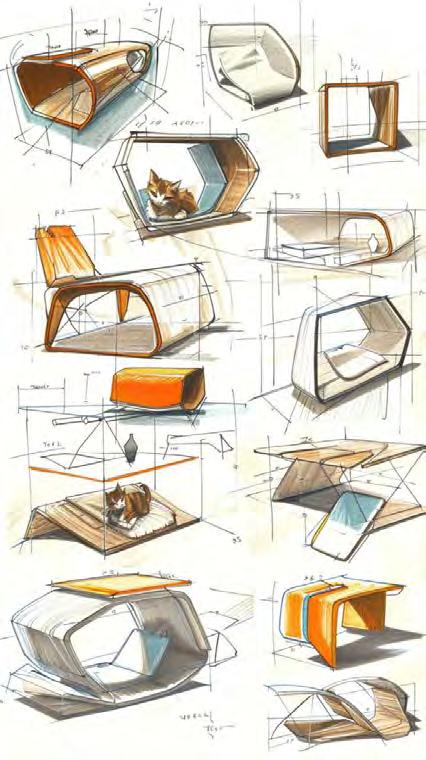
•Principles of design and technology, understanding its importance and relevance in everyday life.
• Focuses on different materials used in design and technology, their properties, and their applications
• Learn about various tools and equipment used in design and technology, including their proper usage, safety precautions, and maintenance.
•Develop fundamental sketching and drawing skills, which are essential for communicating design ideas visually.
•Analyse existing products, understanding their design features, functions, and how they're used by people.
•Explore the design process, including research, idea generation, concept development, and iteration.
•Explore the environmental and social impacts of design and technology, including topics like sustainability, ethical considerations, and user-centred design.
•Evaluate their designs and prototypes, identifying areas for improvement and iterating on their ideas.
•Health and safety practices in the workshop or design studio environment.
Assessment
End of Year Design Exam
•Pearson Edexcel
• Introduction to Devising Techniques & Theatre Makers in Practice
Work Covered
• Introduction to devising techniques: explorative strategies, stimulus response, practitioner influence
•Practical and theoretical exploration of DNA: contexts, themes, genre, structure, style, stage directions, characterisation, speech and language, theatre design, staging, mood and atmosphere
Key Skills
Students will:
•Develop foundational devising skills through practical workshops.
• Explore DNA in depth to prepare for the written exam (Component 3).
• Be assessed on AO3: demonstrating knowledge and understanding of how drama and theatre is developed and performed.
Build skills in:
• Sophisticated performance techniques.
•Character and narrative analysis.
••
•Evaluating themes and playwright intentions.
Assessment
•Performance extract from DNA.
• Theory questions to consolidate understanding.
• Internally assessed to support Component 3 preparation.
Lent Term
Topic
• Official Devising Project Launch & Red Carpet Night
Work Covered
• Launch of official devising project.

•Stimulus decoding, research, contextual awareness.
•Development of narrative, character, genre, style, theatre conventions, and design.
• Attendance and analysis of a professional theatre performance during Red Carpet Night.
Students will:
•Apply theatrical skills to realise artistic intentions in live performance.
• Be assessed on AO2: applying performance skills in devised work.
Develop:
•Collaborative devising and communication.
•Vocal and physical characterisation.
• Integration of practitioner techniques.
Assessment
•Creation of original devised piece.
• Internally assessed and externally moderated rehearsal process documentation.

Topic
•Completion of Assessed Devised Performance & Portfolio Coursework
•Final rehearsals and performance of devised piece.
• Completion of six-question written portfolio.
•Analysis of creative process, character decisions, directing choices, and theatrical conventions.
Students will:
• Reflect on their devising journey.
Be assessed on:
• AO1: creation and development of ideas.
• AO4: analysis and evaluation of own work.
Strengthen:
•Articulation of creative intentions.
•Use of drama terminology.
•Evaluation of genre, structure, style, and personal contribution.

Assessment
•Final devised performance.
• Written portfolio coursework.
• Internally assessed and externally moderated.
• Contributes 40% of overall GCSE Drama qualification (Component 1).

•International Pearson Edexcel
Topic
•Unit 1.1: The Market System
Work Covered
•1.1.1 The economic problem
•1.1.2 Economic assumptions

• 1.1.3 Demand, supply and market equilibrium
•1.1.4 Elasticity
•1.1.5 The mixed economy
•1.1.6 Externalities
Key Skills
• AO1: Recall, select and communicate knowledge of economic terms, concepts and issues
• AO2: Demonstrate understanding and apply economic knowledge using appropriate terms, concepts, theories and calculations effectively in specific contexts
• AO3: Select, organise, and interpret information from sources to investigate and analsye economic issues
• AO4: Evaluate economic information to make reasoned judgements and draw conclusions
Assessment
Mid-term assessment, end of term assessment
Lent Term
Topic
•2.1: Government and the Economy
Work Covered
•2.1.1 Macroeconomic objectives
•2.1.2 Government policies
•2.1.3 Relationships between objectives and policies

• AO1: Recall, select and communicate knowledge of economic terms, concepts and issues.
• AO2: Demonstrate understanding and apply economic knowledge using appropriate terms, concepts, theories and calculations effectively in specific contexts.
• AO3: Select, organise, and interpret information from sources to investigate and analsye economic issues.
• AO4: Evaluate economic information to make reasoned judgements and draw conclusions.s
Assessment
•Mid-term assessment, end of term assessment
•Unit 1.2: Business Economics
•1.2.1 Production
•1.2.2 Productivity and division of labour
• 1.2.3 Business costs, revenues and profit
•1.2.4 Business competition
•1.2.5 The labour market
•1.2.6 Government intervention

• AO1: Recall, select and communicate knowledge of economic terms, concepts and issues.
• AO2: Demonstrate understanding and apply economic knowledge using appropriate terms, concepts, theories and calculations effectively in specific contexts.
• AO3: Select, organise, and interpret information from sources to investigate and analyse economic issues.
• AO4: Evaluate economic information to make reasoned judgements and draw conclusions.
Assessment
Wk 7 assessment.
Topic
• Language Paper 1 (Reading) skills;
• Literature (Poetry Anthology)
Work Covered

• For Literature, students will begin studying 15 anthology poems for their IGCSE Literature course. They will cover poetic forms, language and structural features, contextual links and authorial intent. They will learn how to make useful annotations for revision in the future and will consolidate and strengthen their essay writing skills.
• For Language, students will begin to practice the skills required for their Language Paper 1 exam, including comprehension, understanding implicit meanings, selecting relevant information from texts, evaluating what has been read, summarising information, analysing language and writing for a range of different text types and audiences.
Key Skills
•Comprehension
•Summarising
•Vocabulary
Assessment
• Paper 1 questions 1-3
• Inference
• Synthesising information
• Annotation
• One essay on a set poem Topic
• IIGCSE Prose text study: To Kill A Mockingbird
•Language: Paper 2 Skills – Composition
Work Covered
• Analysis
• Writing to advise, entertain, inform, persuade, recount
• Evaluation

• In Literature, students will begin reading the prose text: To Kill A Mockingbird and will focus on character development; plot; narrative structure; figurative devices; contextual influences; and how to write an effective prose essay.
• In Language, students will begin to prepare for the Paper 2 IGCSE questions, specifically composition. They will learn the components of descriptive and narrative writing and will explore a range of methods to create engaging and effective answers.
Key Skills
•Comprehension
•Technical accuracy
• Structuring writing effectively
Assessment
• Evaluation
• Analysis
• Inference
•Language: Paper 2 Question 2 response
• Literature: One prose exam essay
Summer Term
Topic
•Language: Paper 2 Directed Writing and Paper 1 Revision
•Literature: Poetry Revision and Consolidation
Work Covered
• Essay writing
• Working under timed conditions
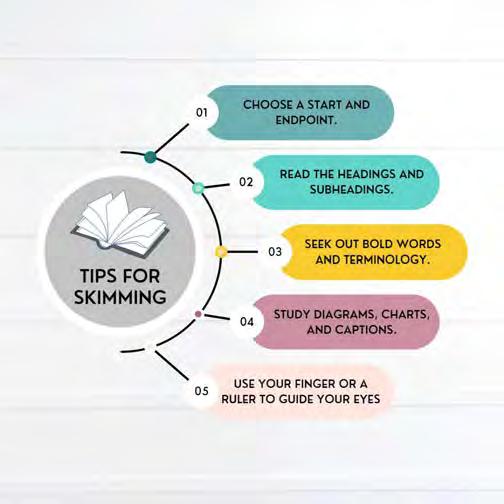
• In Language, students will learn how to approach the directed writing task for their IGCSE exam and will read a range of non-fiction texts in preparation. They will learn the conventions of different writing forms such as formal letters, speeches, journal entries and articles. They will also review and refine paper 1 (reading) skills.
• In Literature, students will review the poems from the start of the year and consolidate their knowledge and understanding of them. They will further refine their exam and essay writing skills under timed conditions.
Key Skills
• Inference
•Synthesising information
•Comprehension
• Analysis
Assessment
• Evaluation
• Written accuracy
• Research
• Essay writing skills
• Modified Paper combining P1 and P2 Skills
• One Literature essay based on the poems
• Revision strategies
• Annotation skills
•Cambridge International Education
Michaelmas Term
Topic
• Travel and Tourism
•Shopping and the consumer society
Work Covered
•Students develop a greater understanding of the issues around travel and tourism, including relating holiday experiences, discussing risk and adventure, exploring the pros and cons of tourism.
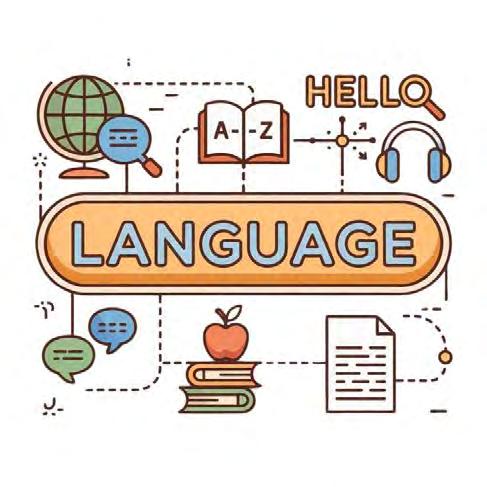
•Students explore the commercial world through topics such as shopping, consumerism, globalisation, fast fashion, and ethical choices.
•Language focus: Second conditional structure, Reported speech
Key Skills
•Reading and listening Comprehension
• Writing: Informal email, article and report
•Speaking and listening for Harkness discussion
•Presentation skills.
Assessment
•Formal assessment of speaking
•Listening, reading
•Writing takes place every half term
Lent Term
Topic
•Science and Nature
• Health, fitness and sport
Work Covered

• Students develop a greater understanding of zoos and the role they play in modern society, the issue of animal extinction, the ethics of science and how animals communicate.
•Students explore key health and lifestyle topics, including nutrition, the risks of smoking, less common sports, and the role of physical activity in staying fit.
• Language focus: Passive voice
Key Skills
•Reading and listening Comprehension
• Writing: Informal email, article, essay and report
•Speaking and listening for Harkness discussion
•Speaking: Exam style speaking practice
Assessment
Formal assessments of speaking, listening, reading and writing take place every half term.
Summer Term
Topic
•Family and lifestyles
•Media and Films
Work Covered

•Students explore family and lifestyle issues, including freedom for young people, the importance of appearance, and modern challenges such as stress and noise pollution.
• Students explore the influence of media through reporting, the pros and cons of television, and their social media footprint. They also engage with film-related activities, including discussing film appeal and seasons, writing reviews, and designing posters to promote their new film club.
• Language focus: prefixes and suffixes, modals for advice and suggestions; imperative verb forms, ‘alternative’ conditional structures
Key Skills
•Reading and listening Comprehension
• Writing: Informal email, article, essay, report, review and note-making
•Speaking: Exam style speaking practice
Assessment
Formal assessments of speaking, listening, reading and writing take place every half term.
•Cambridge International Education
Michaelmas Term Topic
• 1. Ma famille et moi (B1 level)
• 2. La technologie et internet (B1 level)
Work Covered
• My family
•Le rôle des grands-parents
• Les tâches ménagères
•Smartphones
•Dangers and solutions
•Cybercriminality
• 3. L’éducation (B1 level)
• 4. Les loisirs (B1 level)
•The French educational system (schools, classes, exams, subjects)
•Stress at school
Key Skills
•Violence at school
•Compare school before and today
• The different types of leisure activities
•Why practise sports
•E-sport
•Sport for young and old
•Board games
•Cultural activities
• DELF type exercises (Listening, Reading, Writing and Speaking)
• DELF Oral production
•DELF Monologue suivi
• Express the aim
• Formal and informal letters
Grammar
• Reflexive verbs in present tense
•Adjective agreement
• Present tense
• Frequency expressions
• Opinions and justifications
•Complex sentences
• Definite and indefinite articles
• Homophones (c’est, s’est, ces, ses)
•Adjective agreement and place in the sentence
•Pouvoir, vouloir, devoir in present tense
•Give opinions
• Passé composé (avoir, être, reflexive verbs)

• Plus-que-parfait
• Imparfait
• é, er or ez
•Connectives
• Homophones (c’est, s’est, ces, ses, sais, sait)
•Reported speech
• Relative pronouns (simple and complex)
• Near future
Assessment
•Diagnostic assessments
• Continuous formative assessments
•End of module assessments
Lent Term
Topic
• 5. La nourriture et la santé (B1 level)
• 6. L’environnement (B1 level)
•Eating habits
•Healthy eating
• Junk food
•Healthy eating and sports
• Exotic eating (Martinique)
•The state of the planet
• Zero waste living
Grammar
• Future tense
• Quelque or quel que
• Imperative
•Subjunctive
•Give advice
Assessment
• Continuous formative assessments
•End of module assessments
• DELF Oral comprehension
•DELF entretien dirigé
•DELF Exercice en interaction
•DELF monologue suivi
•Write a newspaper article
•How to give advice

• 7. L’environnement (B2 level)
• 8. La consommation (B2 level)
• 9. Literature (B1/B2 level) Choice of book
Work Covered
• How to save the planet
•Ecofriendly habits
•Biodiversity
• Seabeds and climate change (Nouvelle Calédonie)
• A supermarket (Benin)
• Alternative ways to consume (slow fashion in Dakar)
•Short circuits of consumption
•Planned obsolescence
Grammar
• Vocab: Expressions with the word “main”
•Subjunctive
•Connectives
•Using 2 object pronouns in a sentence
• Verbs with prepositions (à and de)
• Indicatif ou subjonctif
Assessment
• Continuous formative assessments
•End of module assessments
• End of year exam (4 skills)
Key Skills
•Read the news and write a short report
•Express a point of view
•Express agreement or disagreement
• DELF : Oral comprehension at B2 level
• How to defend a point of view (argumenter)

•International Pearson Edexcel
Michaelmas Term
• Topic 1& 2: River Environments & Hazardous Environments
•1.1 The world’s water supply is contained in a closed system – the hydrological cycle
•1.2 Physical processes give rise to characteristic river landforms
•1.3 River environments are of great importance to people and need to be sustainably managed
• 3.1 Some places are more hazardous than others
• 3.2 Hazards have an impact on people and the environment
• 3.3 Earthquakes present a hazard to many people and need to be managed carefully
• AO1 - Demonstrate knowledge of locations, places, processes, environments and different scale.
• AO2 - Demonstrate geographical understanding of:
• concepts and how they are used in relation to places, environments and processes
• the interrelationships between places, environments and processes.
• AO3 - Apply knowledge and understanding to interpret, analyse and evaluate geographical information and issues and to make judgements.
• AO4 - Select, adapt and use a variety of skills and techniques to investigate questions and issues and communicate findings.
Assessment
•Continuous assessment in class and regular exam practice.
•Two formal assessments per term.

Topic
•Physical Geography Fieldwork – River Environments
Work Covered
• Investigation of river processes and form through primary and secondary fieldwork Evidence
Primary - Quantitative
• e.g. (1) channel measurements - velocity, width, depth and gradient
• (2) measurements of sediment - size and shape
Qualitative
• e.g. (1) annotated field sketches of the river channel and its features,
• (2) photographs to show how the channel changes downstream
Secondary
• (1) A GIS topographic map, e.g. from ArcGIS Online or Google Earth,
• (2) local secondary data on river flows or regimes
AO1 - Knowledge and understanding of
•Physical processes, including human actions
•The relationships between human activity and the environment
• The importance of scale (local, regional or global)
•The changes which occur through time and across spatial distributions
AO2 - Skills and analysis
• Interpret and analyse data
•Apply geographical knowledge to maps, graphs, photos
• Recognise patterns in data
• Select and use techniques for organising and presenting data
Assessment
•Guidance and regular monitoring of Fieldwork data
• Presence during external fieldwork visits, exam practice applying collected data.

Topic
•Topic 3: Urban Environments
•6.1 A growing percentage of the world’s population lives in urban areas.

•6.2 Cities face a range of social and environmental challenges resulting from rapid growth and resource demands.
• 6.3 Different strategies can be used to manage social, economic and environmental challenges in a sustainable manner.
Integrated skills
• (1) Use world maps to show the trends in urbanisation over the last 50 years.
• (2) Interpret photographs and different maps (paper or online) to investigate the impacts or rapid urbanisation.
• (3) Use satellite images to identify different land uses in the chosen urban environment.
• (4) Use and interpret socio-economic data.
• (5) Use quantitative and qualitative information to judge the scale in variations in environmental quality.
• AO1 - Demonstrate knowledge of locations, places, processes, environments and different scale.
• AO2 - Demonstrate geographical understanding of:
• concepts and how they are used in relation to places, environments and processes
• the interrelationships between places, environments and processes.
• AO3 - Apply knowledge and understanding to interpret, analyse and evaluate geographical information and issues and to make judgements.
• AO4 - Select, adapt and use a variety of skills and techniques to investigate questions and issues and communicate findings.
•Continuous assessment in class and regular exam practice
•Two formal assessments per term
•International Pearson Edexcel
• Weimar and Nazi Germany, 1918-45
•The establishment of the Weimar republic and its early problems
• The recovery of Germany 1924-29
• The Rise of Hitler and the Nazis to January 1933
• Nazi Germany 1933-39
• Germany and the Occupied territories during WW2
In this Paper 1 topic pupils will:

•Gain knowledge and understanding of the key features and characteristics of historical periods
•Develop skills to analyse and evaluate historical interpretations in the context of historical events studied
•Develop skills to explain, analyse and make judgements about historical events and periods studied, using second-order historical concepts
•Continuous assessment in class and regular exam practice
•Two formal assessments per term

•Russia and the Soviet Union, 1905–24
•Tsarist rule in Russia, 1905–14
• Opposition to Tsarist rule 1914–17: the impact of war and the February Revolution
•Provisional Government and the Bolshevik Revolution
•The Bolshevik consolidation of power and the Civil War
• War Communism and the New Economic Policy (NEP)
In this Paper 2 topic pupils will:

•Gain knowledge and understanding of the key features and characteristics of historical periods
•Develop skills to explain, analyse and make judgements about historical events and periods studied, using second-order historical concepts
•Learn how to use a range of source material to comprehend, interpret and cross-reference sources
•Develop skills to analyse and evaluate historical interpretations in the context of historical events studied
•Continuous assessment in class and regular exam practice.
•Two formal assessments per term.

•Russia and the Soviet Union, 1905–24
•Tsarist rule in Russia, 1905–14
• Opposition to Tsarist rule 1914–17: the impact of war and the February Revolution
•Provisional Government and the Bolshevik Revolution
•The Bolshevik consolidation of power and the Civil War
• War Communism and the New Economic Policy (NEP)
In this Paper 2 topic pupils will:
•Gain knowledge and understanding of the key features and characteristics of historical periods
•Develop skills to explain, analyse and make judgements about historical events and periods studied, using second-order historical concepts
•Learn how to use a range of source material to comprehend, interpret and cross-reference sources
•Develop skills to analyse and evaluate historical interpretations in the context of historical events studied
Assessment
•Continuous assessment in class and regular exam practice.
•Two formal assessments per term.

Exam board specification:
•International Pearson Edexcel
Michaelmas Term
Topic
• Home and Abroad
Work Covered
•Life in the town and rural life
•Holidays, tourist information and directions
•Services
•Customs
•Everyday life, traditions and communities
Key Skills

• Listening: Understand main points, specific information and details on topic of Home and Abroad.
•Speaking: Participate in unprepared conversations on topics of Home and Abroad.
• Reading: Understand authentic texts on education and work and be able to answer related questions.
•Writing: Write longer texts to describe school and career ambition using past, present and future tenses correctly.
Assessment
End of Unit Assessment
Lent Term
Topic
•Education and Employment
Work Covered
•School life and routine
•School rules and pressures
•School trips, events and exchanges
•Work, careers and volunteering
•Future plans

• Listening: Understand main points, specific information and details on topics of Education and Employment.
•Speaking: Participate in unprepared conversations on topics of Education and Employment .
•Reading: Understand authentic texts about the world around us and be able to answer related questions.
•Writing: Write longer texts to justify opinions regarding Education and Employment.
Assessment End of Unit Assessment
Topic
•Personal life and relationships
Work Covered
•House and home
•Daily routines and helping at home
•Role models
• Relationship with family and friends
•Childhood
Key Skills
Mandarin as Foreign Language Group:
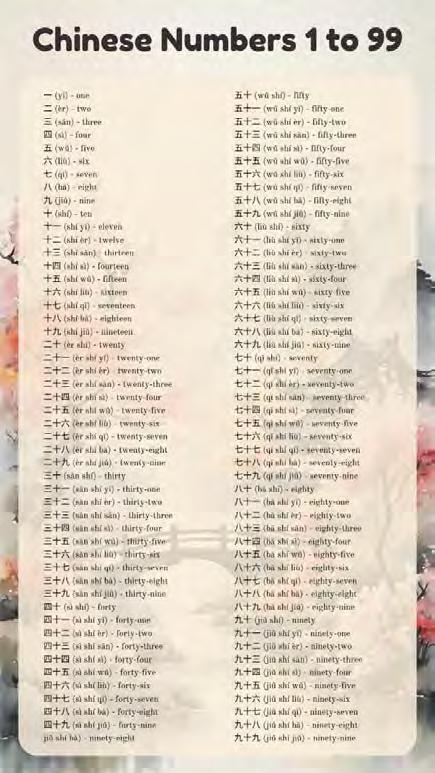
• Listening: Understand main points, specific information and details on topic of Personal life and relationships.
•Speaking: Participate in unprepared conversations on topic of Personal life and relationships.
• Reading: Understand authentic texts personal and social life and be able to answer related questions.
•Writing: Write longer texts to describe personal and social life and be able to justify opinions.
Assessment
• End of Year Assessment
•Cambridge International Education
Michaelmas Term
Topic
•Social relationships and Home town 谁言寸草心 & 此心安处是吾乡
Work Covered
•Narrative 《背影》《目送》《水是故乡甜》
•Argumentative 《朋友四型》《论友谊》 《我理想的家庭》《选择的负担》
• Directed writing 《患难见真情》
•Classical Chinese 《管宁割席》《孟母三迁》
Key Skills
•Reading:Identify and interpret explicit information and attitudes
•Analyse and evaluate facts, ideas and opinions.
• Writing: Communicate clearly, effectively and imaginatively
Assessment
End of Unit Assessment
Lent Term
Topic
• Historical and heroic figures 千古风流人物
Work Covered
•Narrative 《平民总统孙中山》《高木老师》
•Argumentative 《让自己成为平民英雄》《英雄与时势》
• Directed writing 《英雄》
•Classical Chinese 《草船借箭》
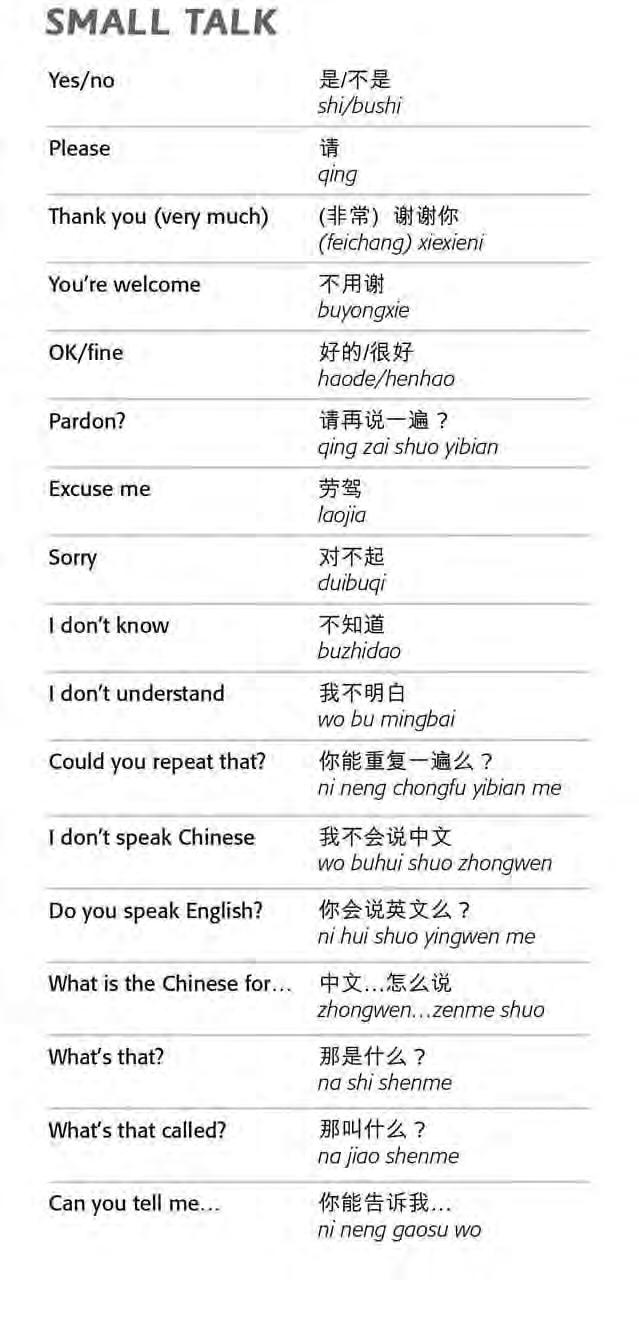
Key Skills
• Reading: Identify and interpret implicit information and attitudes. Demonstrate understanding of how writers use language and structure to achieve effects and influence readers
• Writing: Produce clear and coherent texts that communicate effectively, sustaining the reader’s interest
Assessment
End of Unit Assessment
Summer Term
Topic
•Natural landscapes and travelling 只缘身在此山中
Work Covered
•Narrative《海滨仲夏夜》 《山阴道上》
•Argumentative 《生物的睡眠》《动物游戏之谜》
• Directed writing《黄昏中的校园》
•Classical Chinese 《三峡》
Key Skills
• Reading: Identify and comment on specific ways in which writers use language, form and structure for effect
•Writing: Write in paragraphs using varied sentence structures, demonstrating control of syntax and grammar and using accurate character formation and punctuation
Assessment
• End of Year Assessment

•International Pearson Edexcel
Michaelmas Term
Topic
•Algebra, Graphs, Geometry, Number
Work Covered
•Rounding, estimation, calculator use
•Prime factors, HCF, LCM
•Fractions, decimals, percentages
• Indices and standard form
•Basic algebra and expressions
Key Skills
• RSubstitution and formulae
•Compound measures
• Linear equations and inequalities
• Geometry of shapes (angles, triangles, quadrilaterals)
•Statistical measures (mean, median, mode, range, grouped data)
•Accuracy and estimation in problem-solving
•Algebraic manipulation and substitution
• Interpreting statistical data and calculating measures of spread
•Applying angle rules and properties of 2D shapes
Assessment
• End of Unit tests for Number & Fractions, Algebra & Formulae, Measures & Equations, Geometry & Statistics
•Constant formative and Prep tasks
Lent Term
Topic
•Number, Algebra, Geometry, Statistics
Work Covered
•Ratio and proportion
•Linear graphs and real-life graphs
• Sequences (arithmetic, recognition of patterns)
•Percentages (increase, decrease, compound interest, reverse percentages)
•Bearings and scale drawings
• Constructions (triangles, bisectors, perpendiculars)
• Expanding and factorising quadratics
• Simultaneous equations
•3D shapes: volume and surface area of prisms, cylinders
•Angles in polygons
• Setting up and solving equations in context
•Modelling proportional reasoning problems
•Constructing accurate diagrams and scale drawings
• Using algebraic techniques to manipulate quadratics
Assessment
•Constant formative, homework and end of topic assessments.
•Algebra, Geometry, Probability
Work Covered
• Pythagoras’ theorem and trigonometry (right-angled triangles)
• Transformations (reflection, rotation, translation, enlargement)
• Quadratic equations and graphs (factorisation, completing the square, intersections)
• Algebraic fractions
•Sets and Venn diagrams
Key Skills
•Applying trigonometric methods to 2D problems
• Interpreting and sketching quadratic graphs
• Manipulating algebraic fractions
•Using set notation and probability rules
•Reasoning deductively with circle theorems
Assessment

•Probability (sample space, tree diagrams, independent/mutually exclusive events)
•Further 3D geometry: surface area and volume of cones, spheres
•Similarity and congruence
• Circle theorems (angles in circles, cyclic quadrilaterals, alternate segment theorem

•End of Unit tests for Pythagoras & Trigonometry, Transformations, Quadratics, Sets & Probability
•End of Year Exam
Topic
•Number
•Algebra and Graphs
•Functions,
•Quadratics
•Types of numbers, sets, powers and roots, standard form, indices, surds, set notation, Venn diagrams. [ext/add]

• • Algebraic manipulation, equations and inequalities, algebraic fractions, linear equations. [ext/add]
•Function notation, domains and ranges, inverse functions, composite functions. [add]
• Solving quadratic equations, completing the square, quadratic formula, graphing. [add]
•Understanding number types, set notation, manipulating indices and roots, working with surds.
•Using set notation. Shading and describing regions.
• Understanding Venn diagrams with frequencies.
• Solving algebraic expressions, linear and quadratic equations.
•Understanding and using function concepts, domain, and range.
Assessment
•Constant formative, homework, and end of topic assessments.

•Mensuration, proportion, simple/compound interest
•Logarithmic and exponential functions
•Polynomials, Transfomring relationships to straight line form
•Circle and vector geometry
• Perimeter, area, volume of geometrical figures. [ext]
• Laws of indices, exponential growth and decay, solving exponential equations. [add]
• Laws of logarithms, solving logarithmic equations, relationship with exponentials. [add]
• Factorization of polynomials, remainder and factor theorems. [add]
• Linearizing relationships, interpreting linear graphs. [add]
• •Vector notation and operations, geometric reasoning with vectors. [ext/add]
•Calculating perimeter, area, and volume of various shapes.
• Understanding and applying logarithms, solving related equations
•Factoring polynomials, using remainder and factor theorems.
•Transforming and interpreting non-linear relationships.
•Understanding and using vector operations, solving problems with vectors.
•Constant formative, homework, and end of topic assessments.

•Statistics, Probability and sets, Permutations, Combinations, and Binomial Expansion, Series,
• Averages and Range, percentiles and quartiles, scatter diagram and correlations, histograms & cumulative frequency. (ext)
• Probability, using tree diagrams to show outcomes. (ext)
• Difference between permutations and combinations, solving related problems, binomial theorem. [add]
• •Arithmetic and geometric progressions. [add]
•Finding more complex probabilities using tree diagrams.
•Understanding and using logarithmic and exponential functions, solving related problems.
• Using combinatorics of nCr and nPr, finding binomial probabilities.
• Finding the nth term and the sum to infinity. Recognising convergent and divergent sequences.
•Constant formative, homework and end of topic assessments.

•Cambridge International Education
Michaelmas Term
Topic
•Western Classical Art Music
Work Covered
Students will study the most common musical features, characteristics, composers and changing instrumentation of the Baroque, Classical and Romantic eras. They will also look in depth and the most common forms and structures of the eras including Minuet and Trio and Theme and Variation.
Key Skills
•Performing
•Composing
•Listening
•Theory
•Responding
Assessment
•1 solo
•1 Ensemble
•Composition exercises
• End of unit quizzes
Lent Term
Topic
• Repeating Patterns
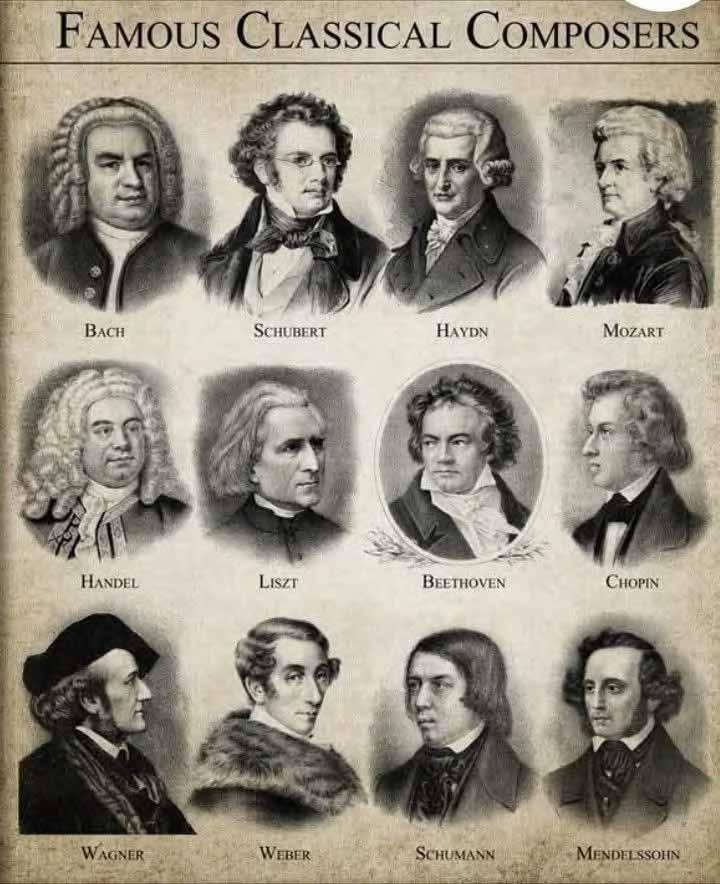
Work Covered
Students will explore the musical features of Jazz along with links to the Baroque period and Ground Bass. Keeping to the theme of repetition, students will finish the term studying the music of Sub-Saharan African.
Key Skills
•Performing
•Composing
•Listening
•Theory
•Responding Assessment
•1 solo
•1 Ensemble
•Composition exercises
• End of unit quizzes
Summer Term
Topic
•World Music
Work Covered

Students finish their exploration of the World Music element of the syllabus by focusing on Latin American, Arabic and Indonesian musical traditions.
Key Skills
•Performing
•Composing
•Listening
•Theory
•Responding Assessment
•1 solo
•1 Ensemble
•Composition exercises
• End of unit quizzes
•End of year exam

•Cambridge International Education
Michaelmas Term
Topic
•Anatomy and Physiology
Work Covered
Theory
•Skeletal and Muscular System
•Respiratory System
•Circulatory System
• Energy supply and the effects of exercise on the body
•Simple Biomechanics
Practical
• Identify strongest four sports and develop skills
Key Skills
•Demonstrate knowledge and understanding of theoretical principles
•Apply knowledge and understanding of theoretical principles
• Demonstrate the ability to select and perform appropriate skills to produce effective practical performance
Assessment
• Checkpoint tests
• Chapter tests
Lent Term
Topic
•Health, Fitness and Wellbeing
Work Covered
Theory
• Health and wellbeing
•Fitness
•Diet and energy sources
• Components of fitness
• Fitness testing

Practical
•Develop skills in selected sports
• Fitness testing
Key Skills
•Demonstrate knowledge and understanding of theoretical principles
•Apply knowledge and understanding of theoretical principles
• Demonstrate the ability to select and perform appropriate skills to produce effective practical performance
Assessment
Checkpoint tests, Chapter tests
Topic
•Health, Fitness and Wellbeing
Work Covered
Theory
• VO2 max
• Principles of training
• Methods of training
•Warming up and cooling down
Practical
•Filming for assessment in top two sports
• Methods of training
Key Skills

•Demonstrate knowledge and understanding of theoretical principles
•Apply knowledge and understanding of theoretical principles
• Demonstrate the ability to select and perform appropriate skills to produce effective practical performance
Assessment
Checkpoint tests, Chapter tests, End of Year Assessment
•Cambridge International Education
Topic
•Forces and Motion,
•Energy Resources and Energy Transfer,
•Electricity
Work Covered
•Motion and Position
•Forces and Shape
•Forces and movement
• Energy transfers
•Thermal Energy
•Work and Power
•Mains Electricity
•Current and Voltage in Circuits
•Electrical Resistance, Key Skills
• Sketching and plotting graphs
•Procedure to problem solve with calculation
•Finding gradient and area of graphs
• Interpretation of graphs
•Energy Diagrams
•Mathematical Substitution
• Rounding to the correct precision
• Investigation Planning in familiar and unfamiliar contexts

• Interpreting, evaluating and displaying data in graphs and tables
• Interpretation of graphs
•Drawing Conclusions
• Harkness – Energy Solutions – Global Citizenship – Providing solutions for remote and poor communities
Assessment
Classwork, prep-work assessed to exam criteria, Harkness Performance, Controlled tests with Edexcel
Examination Questions
Lent Term
Topic
•Waves
•Solid
• Liquids
•Gases

•Work Covered
• Properties of Waves
•The Electromagnetic Spectrum
•Light, Density and Pressure
• Solids liquids and gases
•Ray diagrams,
•Mathematical Substitution
• Trigonometric functions
• Rounding to the correct precision
• Investigation Planning in familiar and unfamiliar contexts

• Interpreting, evaluating and displaying data in graphs and tables
• Interpretation of graphs
•Drawing Conclusions
Assessment
Classwork, prep-work assessed to exam criteria, Controlled tests with Edexcel Examination Questions
Work Covered
•Radioactivity and Particles
• Description to explanation
•Application of principles to real world situations
• Investigation Planning in familiar and unfamiliar contexts
• Interpreting, evaluating and displaying data in graphs and tables
• Interpretation of graphs
•Drawing Conclusions
Assessment
Classwork, prep-work assessed to exam criteria, Controlled tests with Edexcel Examination Questions. End of Year Test
Topic
• Introduce myself
Work Covered
•My home
•My school
Key Skills
Listening:
•My eating habits
•My body and health

•Understand short recordings dealing with everyday needs
•Understand factual information and ideas from a range of sources
•Understand descriptions of events, opinions, emotions, hopes and ambitions in simple texts
• Identify main points, specific information and details on everyday topics
• Identify main points, themes, opinions, ideas, emotions and attitudes in predictable texts
•Deduce the meaning of occasional unknown words and expressions from the context.
Reading:
•Understand short, simple texts
•Understand authentic texts on familiar topics and situations
•Understand descriptions of events, opinions, emotions, hopes and ambitions in simple texts
• Identify main points, specific information and details in predictable texts
• Identify main points, themes, opinions, ideas, emotions and attitudes in predictable texts
•Deduce the meaning of occasional unknown words and expressions from the context.
Speaking:
•Participate in short social exchanges and
•communicate on familiar topics to meet simple needs
•Participate in unprepared conversations on familiar topics of personal interest or relevant to everyday life
•Describe past events and experiences, hopes and ambitions and give brief reasons for opinions and plans.
•Communicate with reasonable accuracy, using a range of structures, tenses and vocabulary relevant to the given situation.
• Use simple connectors (e.g. and, but, because, then) to link a series of shorter discrete elements into a connected sequence of points.
•Use appropriate strategies to maintain interaction.
• Use features of pronunciation and intonation to convey meaning and attitude.
Writing
•Fill in forms providing simple details.
•Communicate simple factual information in writing using everyday vocabulary and expressions.
•Write a series of simple phrases and sentences linked with simple connectors, relating to personal life, immediate environment and everyday topics (e.g. writing about a holiday).
•Write simple connected texts on familiar topics
•Describe past events and experiences, opinions, hopes and ambitions and give brief reasons for opinions and plans.
•Communicate with reasonable accuracy, using a range of structures, tenses/time frames and vocabulary
Assessment
End of topic assessment
Lent Term
Topic
•My family and my friends, at home and abroad:
Work Covered
•Self, family, pets, personal relationships
•Life at home
•Leisure, entertainments, invitations
•Eating out
•Special occasions
•Going on holiday
•Family and friends abroad
Key Skills
Listening
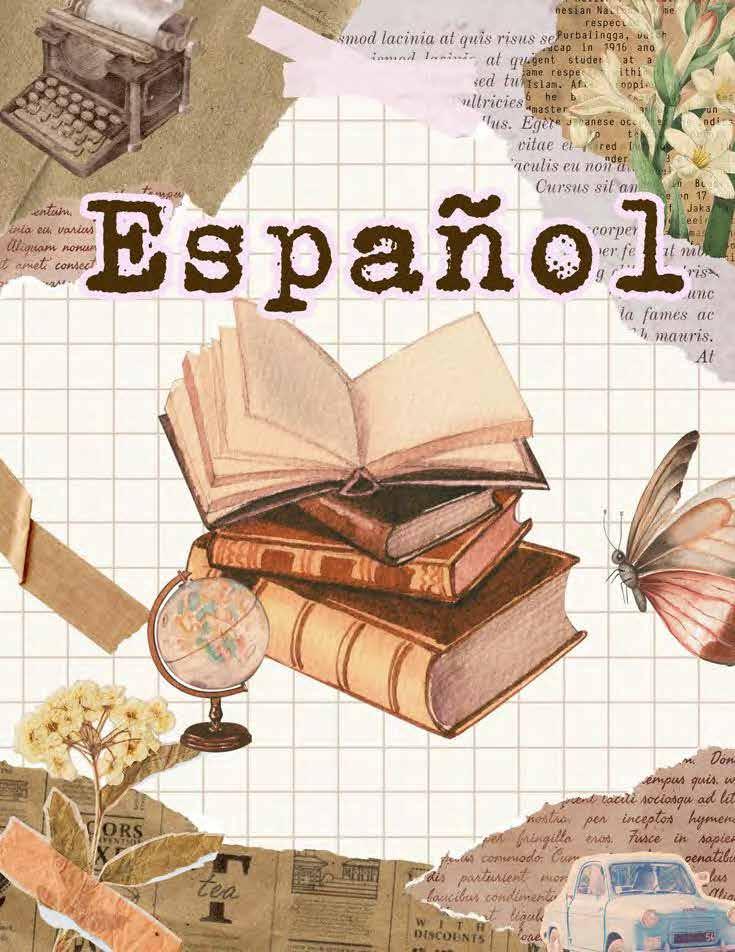
•Understand short recordings dealing with everyday needs
•Understand factual information and ideas from a range of sources
•Understand descriptions of events, opinions, emotions, hopes and ambitions in simple texts
• Identify main points, specific information and details on everyday topics
• Identify main points, themes, opinions, ideas, emotions and attitudes in predictable texts
•Deduce the meaning of occasional unknown words and expressions from the context
Reading
•Understand short, simple texts
•Understand authentic texts on familiar topics and situations
•Understand descriptions of events, opinions, emotions, hopes and ambitions in simple texts
• Identify main points, specific information and details in predictable texts
• Identify main points, themes, opinions, ideas, emotions and attitudes in predictable texts
•Deduce the meaning of occasional unknown words and expressions from the context.
Speaking
•Participate in short social exchanges and
•communicate on familiar topics to meet simple needs
•Participate in unprepared conversations on familiar topics of personal interest or relevant to everyday life
•Describe past events and experiences, hopes and ambitions and give brief reasons for opinions and plans
•Communicate with reasonable accuracy, using a range of structures, tenses and vocabulary relevant to the given situation
• Use simple connectors (e.g. and, but, because, then) to link a series of shorter discrete elements into a connected sequence of points
•Use appropriate strategies to maintain interaction
• Use features of pronunciation and intonation to convey meaning and attitude
Writing
•Fill in forms providing simple details
•Communicate simple factual information in writing using everyday vocabulary and expressions
•Write a series of simple phrases and sentences linked with simple connectors, relating to personal life, immediate environment and everyday topics (e.g. writing about a holiday)
•Write simple connected texts on familiar topics
•Describe past events and experiences, opinions, hopes and ambitions and give brief reasons for opinions and plans
•Communicate with reasonable accuracy, using a range of structures, tenses/time frames and vocabulary
End of topic assessment, including previous topic.

• Where I live and what it’s like
Work Covered
•Home town and geographical surroundings
•Shopping
•Public services
•Natural environment
•Weather
• Finding the way
• Travel and transport
Listening

•Understand short recordings dealing with everyday needs
•Understand factual information and ideas from a range of sources
•Understand descriptions of events, opinions, emotions, hopes and ambitions in simple texts
• Identify main points, specific information and details on everyday topics
• Identify main points, themes, opinions, ideas, emotions and attitudes in predictable texts
•Deduce the meaning of occasional unknown words and expressions from the context
Reading
•Understand short, simple texts
•Understand authentic texts on familiar topics and situations
•Understand descriptions of events, opinions, emotions, hopes and ambitions in simple texts
• Identify main points, specific information and details in predictable texts
• Identify main points, themes, opinions, ideas, emotions and attitudes in predictable texts
•Deduce the meaning of occasional unknown words and expressions from the context
Speaking
•Participate in short social exchanges
•communicate on familiar topics to meet simple needs
•Participate in unprepared conversations on familiar topics of personal interest or relevant to everyday life
•Describe past events and experiences, hopes and ambitions and give brief reasons for opinions and plans
•Communicate with reasonable accuracy, using a range of structures, tenses and vocabulary relevant to the given situation
• Use simple connectors (e.g. and, but, because, then) to link a series of shorter discrete elements into a connected sequence of points
•Use appropriate strategies to maintain interaction
• Use features of pronunciation and intonation to convey meaning and attitude
Writing
•Fill in forms providing simple details
•Communicate simple factual information in writing using everyday vocabulary and expressions
•Write a series of simple phrases and sentences linked with simple connectors, relating to personal life, immediate environment and everyday topics (e.g. writing about a holiday)
•Write simple connected texts on familiar topics
•Describe past events and experiences, opinions, hopes and ambitions and give brief reasons for opinions and plans
•Communicate with reasonable accuracy, using a range of structures, tenses/time frames and vocabulary
Assessment
End of year test covering all topics (mock)

•การอ่านวิเคราะห์ใจความ เจตนา โวหาร
•การเขียนตอบเชิงวิเคราะห์ (Analytical Paragraph)
•การเขียนบทความจดหมายรายงานและบทความเชิญชวน
•การใช้ภาษาโน้มน้าวในงานเขียนและการพูด
Non-Thai
• Personality & Identity
• Have/How questions
•Chaki Dynasty
• Shopping & Services (purchase, returning/exchange)
• Thai Political System (basic)
•Weathers
• History Rattan Kosin
•Describing People
Work Covered
Thai:
•ฝึกอ่านบทความ/ข้อความเพือตีความใจความหลัก

•ฝึกเขียนย่อหน้าเชิงวิเคราะห์โดยใช้โครงสร้าง OREO / PEEL / TEXAS มีการอ้างอิงหลักฐานและอธิบายเหตุผลอย่างชัดเจน
•เรียนรู้รูปแบบการเขียนทีแตกต่างกัน (Article, Letter, Report, Leaflet) โดยเน้นการใช้ภาษาและโครงสร้างให้เหมาะสมกับวัตถุประสงค์
(Argumentative Writing)
Non-Thai
•1. Research Thai study topics
•2. Thai language project presentations
•3. Listening short Thai passage, story and article
•4. Group work discussion and sharing idea
Key Skills
Thai
•Reading: หาใจความหลัก
• Analytical Writing: ใช้ OREO/PEEL/TEXAS อ้างอิงหลักฐาน +
• Genre Awareness: เขียน Article/Letter/Report/Leaflet ให้เหมาะกับวัตถุประสงค์
• Argumentative Writing: ระบุจุดยืน
• Critical Thinking: ตั้งคําถาม
Non-Thai
• Understanding Thai study topics in different contexts
•Be able to present and talk about their knowledge in Thai language
Assessment
•Thai
•ประเมินท้ายบทเรียน
•การนําเสนอผลงาน
Non-Thai
• Ongoing formative assessment
• Quiz after finished the topics
• Questions and Answers
Topic
Thai:
•การเปรียบเทียบแนวคิด

•การเขียนเปรียบเทียบความคิดเห็นจากหลายมุมมอง (Discursive Writing)
•การฝึกทําข้อสอบ Paper 1 เต็มชุด (Mock Exam)
•การฝึกทําข้อสอบ Paper 2 เต็มชุด (Mock Exam)
Non-Thai
•1. Comparing Cultures
• 2. Occupations
• 3. Indoor-outdoor activities
•4. Rules and Responsibilities
• 5. Thai table manners
• 6. Thai desserts
Work Covered
Thai
Paper 1 (Reading & Analysis)
(Article, Report, Letter, Argumentative, Discursive Essay)
Non – Thai
•1. Research and comparing their own culture with Thai culture
•2. Listening short Thai passage, story and article
•3. Group work discussion and sharing idea
Thai
•การเขียนตามรูปแบบ: เขียน Article, Report, Letter, Argumentative, Discursive Essay
Non-Thai
•Be able to present and talk about their knowledge in Thai language
•Role play and use proper Thai language
• Asking questions and answering in Thai language
• Hand-on Activities
Thai
•การนําเสนอผลงาน Non-Thai
• Ongoing formative assessments
•Listening and speaking test

Topic
Thai: •การวิเคราะห์ถ้อยคํา
Non-Thai
• News
•Thai Royal Projects
•Environment
•Cross-cultural communication
Work Covered
Thai: •ฝึกการตีความถ้อยคําและโวหารทีมีผลต่ออารมณ์และความเข้าใจของผู้อ่าน
Non-Thai
•1. Read news, group or class discussion
•2. Research and sharing
•3. Presentations
Key Skills
Thai
•Be able to present and talk about what their learnt
• Asking questions and answering in Thai language
• Han-on Activities
Assessment
Thai

• Ongoing formative assessment
•Listening and speaking test

Wellington College International School Bangkok 18 Krungthep Kreetha Road, Thap Chang, Saphan Sung, Bangkok
info@wellingtoncollege.ac.th 02 087 8888
wellingtoncollege.ac.th #WeAreWellington